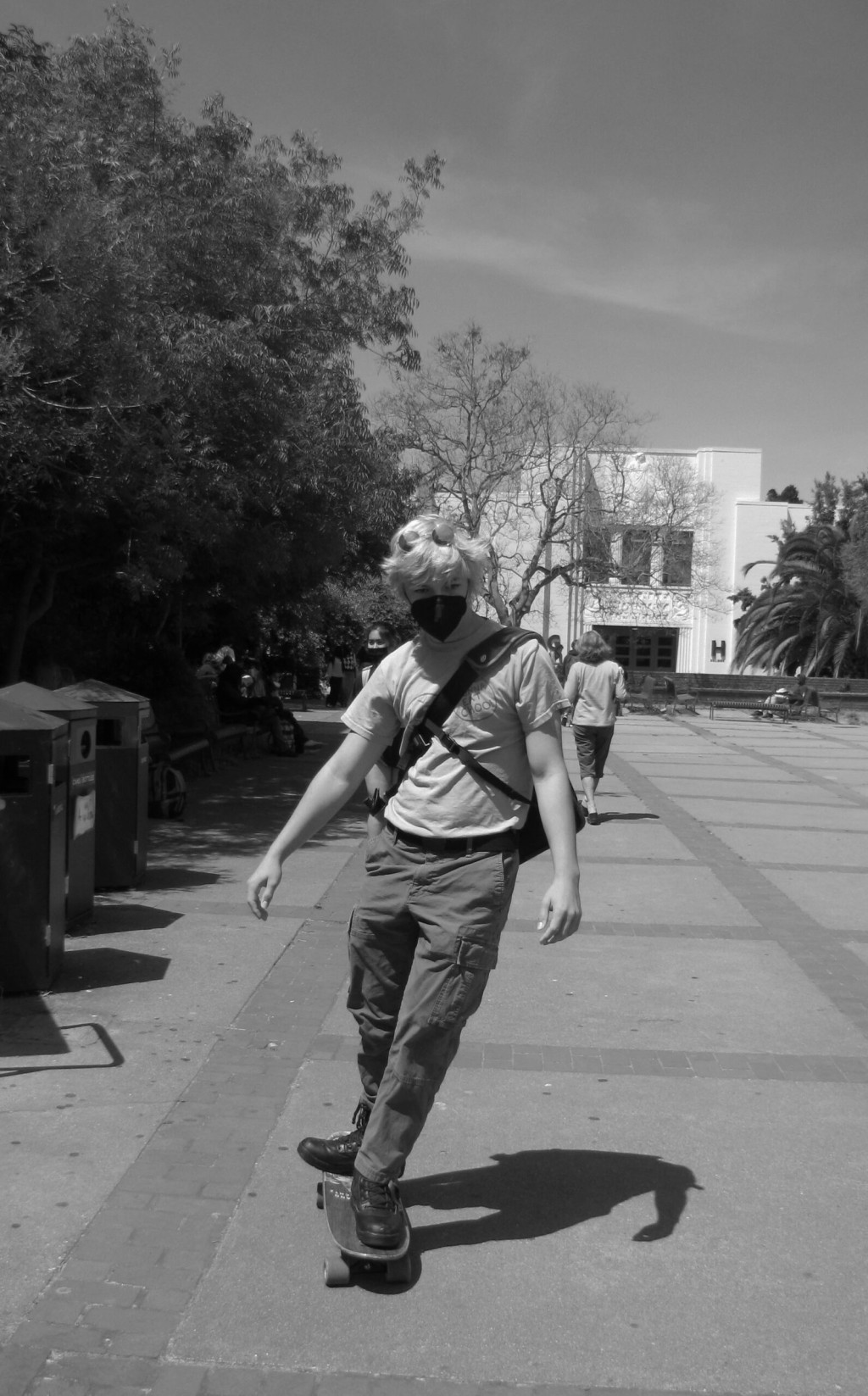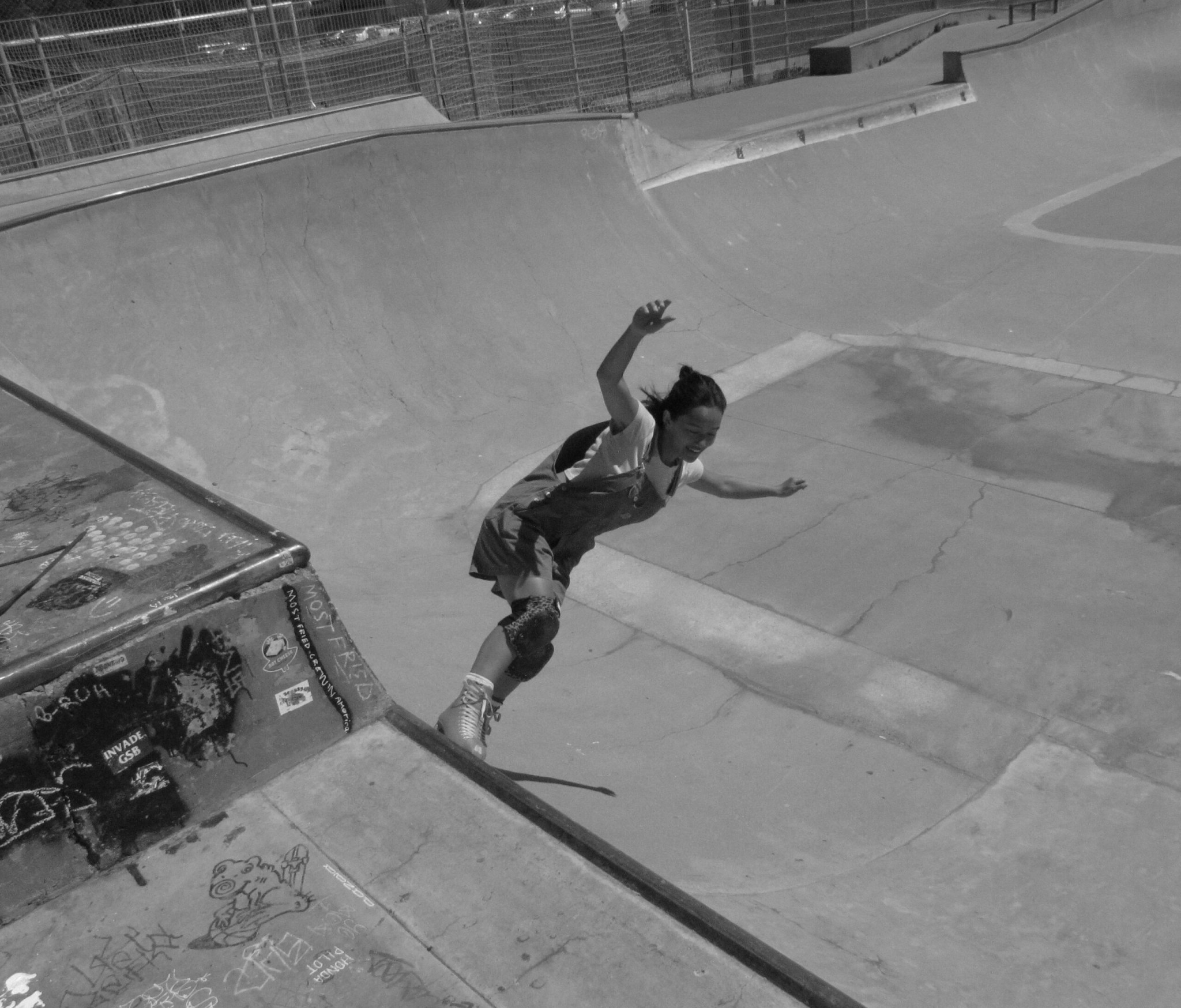“If I'm a girl, and I'm good at skating, the first thing that guys will resort to is just being really threatened by me,” said Naiya Leighton, a sophomore at Oakland Technical High School (Oakland Tech) who has been skating for three years. “A lot of the time [they] mansplain things to me and [say things like], ‘Oh, you're not doing that right, you don't know how to do that trick." They won't let me just have fun on my skateboard,” Leighton said.
Leighton is not the only skater who has observed how gender identity affects their experience at skate parks. Penelope Griffin, a sophomore at Northgate High School in Walnut Creek, has been surrounded by skating culture her whole life. Her dad owns a skate hardware company and they often go to the skate park together.
“If I go to the skatepark with my dad,... people will talk to him and then kind of ignore me, which I think is weird because my dad's a 40 year old man and I'm like a teenager… [so why are] teenage kids talking to him instead of me?” said Griffin.
Griffin recalled another similar experience, when a teenage skater boy started asking her dad questions about her skating. “He wasn't saying anything negative...but I just felt really weird because he could have asked me…he was acting like I wasn't there.”
Sometimes, however, the gender disparities aren’t as explicit. With Naiya Leighton’s male skater friends, it's often more passive aggressive. "They bully me in a way that's not friendly compared to their friends that are guys if we're all skating in a group… but it's just really passive aggressive, I guess, and nobody else notices but me.”
Both Leighton and Griffin participated in a Bay Area program called Skate Like A Girl, that uplifts young women and non-binary skaters. “[Skate Like A Girl] introduced me to a community of women and non binary skaters, which was a really good thing to have first starting out in skating, because it can be really intimidating,” said Leighton.
For Iris Jackson, a freshman at Oakland Tech, gender representation in skate culture should go beyond the skate park. “There's a lot of shows I've seen about mainly men skating and it could be cool if there's a lot more other people.”

Clyde Scott, a sophomore in Academic Choice (AC) started skating around four years ago. They said they would like to see more acceptance in skate culture. “I think there’s a lot of people who skate and it gives them an ego which makes the community less inviting. But skating should be open to anyone, regardless of skill, gender, etc.”
Yet the skate park isn’t only home to skateboarders. Sasha Wizelman, a senior in Communication Arts and Sciences (CAS) added that roller skaters also use the skate park and experience similar dynamics.
At the skatepark, barely any girls or non binary skaters can be seen, making it harder for this demographic to feel welcomed.“I do have a couple of girls that I skate with, which is nice because going to the skate park alone, especially … [if there are just] guy skateboarders … it’s not as fun and harder to enjoy yourself,” said Dorado.
Skating can be a community, one where people can hang out and skate together, but it isn’t perfect and more inclusion is needed.





